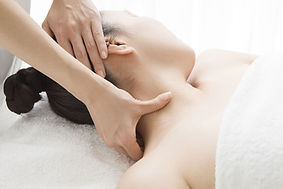
VESTIBULAR REHAB
/ CONCUSSIONS

Symptoms of “ dizziness” are the number three reason people over the age of sixty-five seek medical attention. It is the number one reason people see a physician over the age of seventy but it can occur in people of ANY age. Fifty percent of people over the age of sixty-five can develop a specific type of vertigo /dizziness that can be alleviated by a specially trained physical therapist in usually just one treatment session. In all of these circumstances medical or surgical treatment is often not appropriate but vestibular rehabilitation can be very helpful.
Vestibular rehabilitation reduces dizziness-related problems and improves balance . It is an exercise-based program that is designed by a specially trained physical therapist and then individualized for each patient based on their needs.
COMMON DESCRIPTIONS OF DIZZINESS BY PEOPLE:
-
Lightheadedness
-
Feeling unsteady
-
Floating
-
Funny feeling in head
-
Feeling like going to pass out
-
Spinning
-
Swimming feeling in head
-
Swaying
-
Tilting
-
Whirling
-
Feeling like moving
-
Vertigo
Any of these symptoms or feelings can last seconds, minutes , hours , days, weeks , or be episodic. These feelings of dizziness can occur when laying down , sitting , standing, changing positions ,or moving , or just when being still.
Most dizziness isn’t serious but could be due to an inner ear disorder , a mechanical problem , a neck issue , or from certain medications. In rare circumstances it could be a more serious problem like a brain or cardiac issue which your physical therapist is trained to screen for and refer to the appropriate cardiologist or neurologist.
COULD YOU BENEFIT FROM VESTIBULAR REHAB?

A trained physical therapist will review your medical history and perform a thorough physical examination. The physical therapy vestibular evaluation will include:
-
strength evaluation of your upper extremities and lower extremities
-
neck range of motion and arm and neck strength
-
visual assessment looking at eye and head movements
-
positional testing to see which positions cause dizziness
-
inner ear assessment
-
walking assessment
-
balance assessment
-
screen for BPPV (Benign Paroxysmal Positional Vertigo)
Once the assessment is complete your physical therapist will come up with a treatment plan that is individualized for you and your unique deficits / issues.
Participation in a vestibular rehabilitation program will improve your functional mobility and activities of daily living, reduce your risk of falling, and improve your quality of life!
